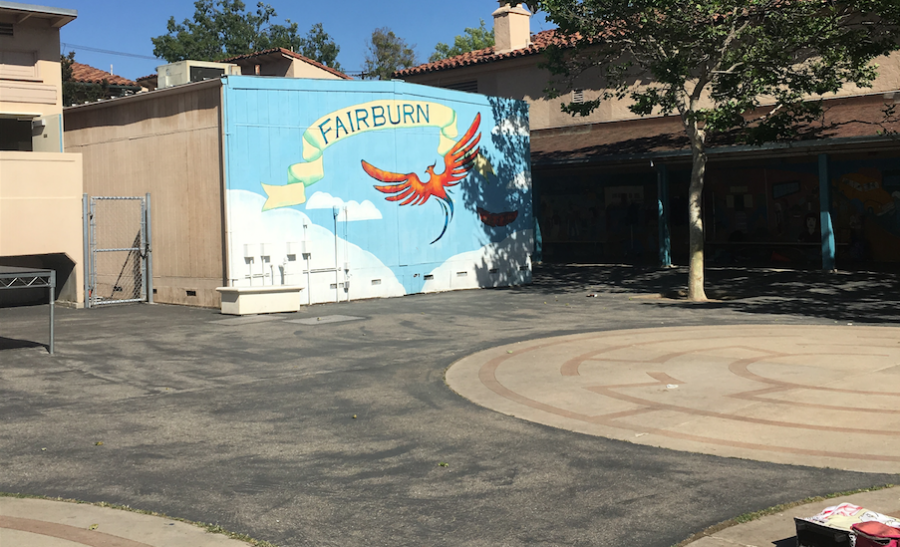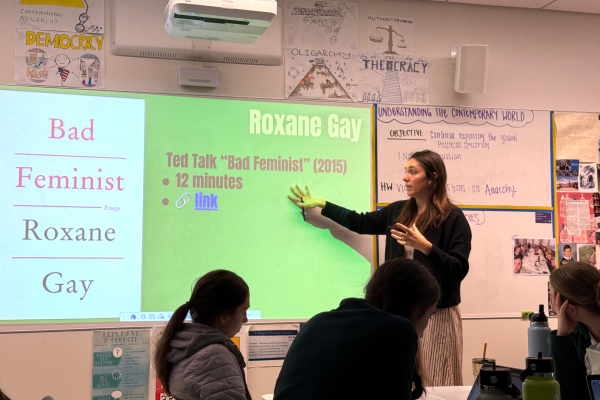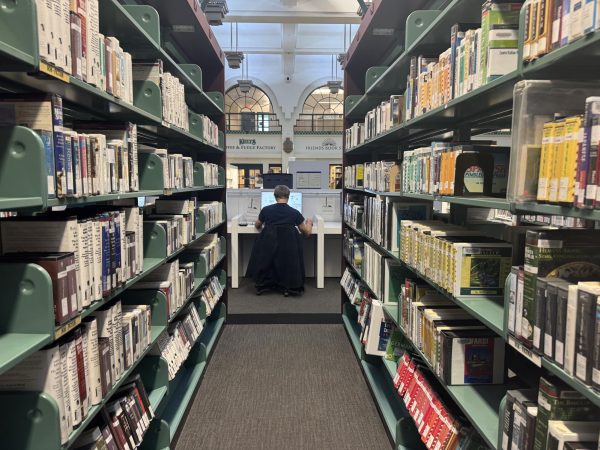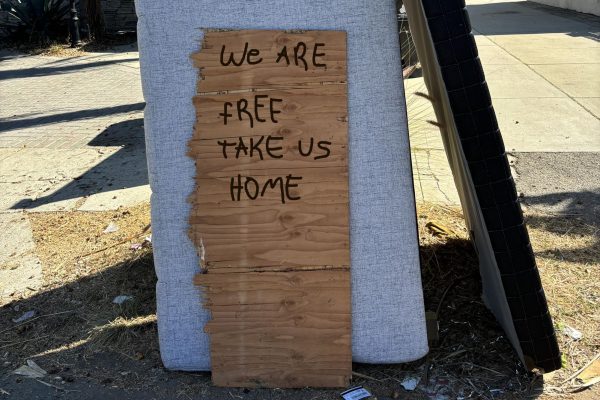LAUSD’s first African-American female superintendent talks goals, motivation behind district leadership
The Los Angeles Unified School District (LAUSD) is the second largest district in the country. According to its website, the district educates over 640,000 students, incorporates 720 square miles and serves around 30 neighborhoods. Its racial makeup is extremely varied — with about 72 percent of students of Hispanic origin, 10 percent of students from white backgrounds, 10 percent of students from African-American descent, four percent of students from Asian-American backgrounds and two percent of students from Filipino descent, as of 2011-2012.
Yet, until this year, a woman of color has never led the district.
In fact, the last time a woman held the position of LAUSD superintendent was in 1929 — over 80 years ago. Michelle King was selected in January to oversee the district. She is also unique in other ways.
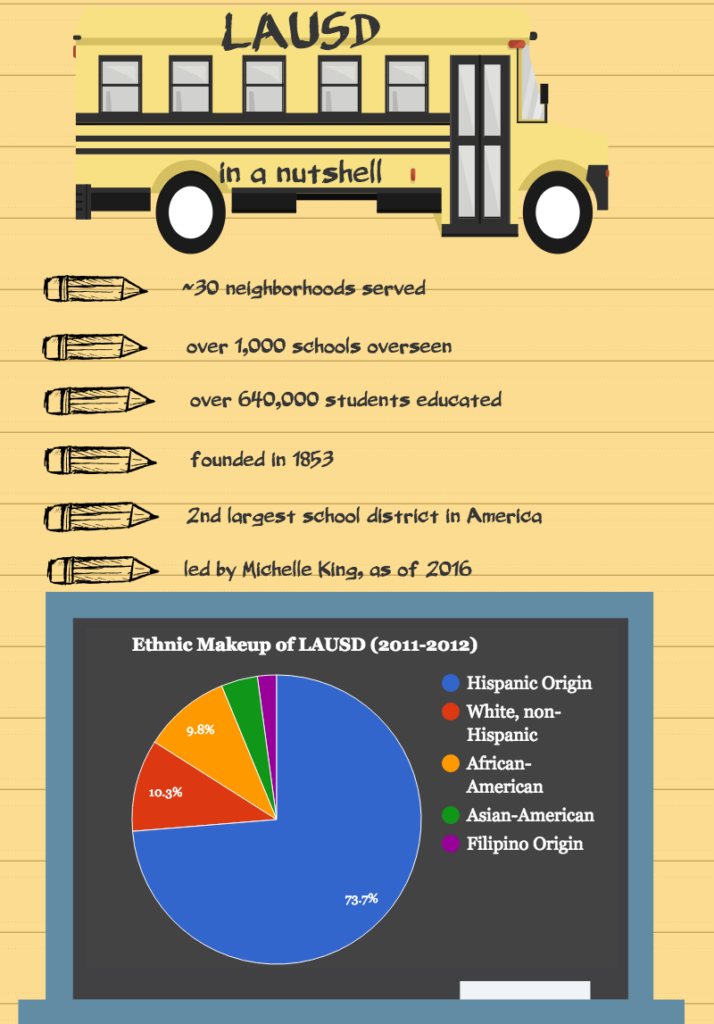 She grew up in Los Angeles and has been part of LAUSD since her early childhood, but she also has significant ties to Archer, considering her daughter is an alum, class of 2007. In an exclusive phone interview with the Oracle, King discussed her passion for education, goals for her superintendency, the role of diversity in public schooling and more.
She grew up in Los Angeles and has been part of LAUSD since her early childhood, but she also has significant ties to Archer, considering her daughter is an alum, class of 2007. In an exclusive phone interview with the Oracle, King discussed her passion for education, goals for her superintendency, the role of diversity in public schooling and more.
King and LAUSD: A lifelong partnership
King began her journey with the school district as a student. Her official LAUSD bio page states that during her youth, she attended Century Park and Windsor Hills elementary schools, Palms Junior High School and Palisades High School.
“It means a lot [to be the leader of LAUSD] because it’s been part of my life since I was a little kid, and so to have the opportunity to lead the system is very important to me,” King said.
According to the LA Times, after her time at local schools, she went on to receive her bachelor’s degree from The University of California, Los Angeles, her masters in science in administration from Pepperdine University and is now working on a doctorate in education from The University of Southern California.
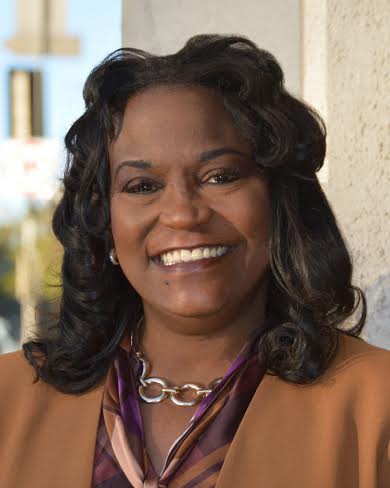
King spent the entirety of her career in education within LAUSD. After teaching at Porter Junior High School, George K. Porter Middle School and Wright Middle School, King became the Assistant Principal at Hamilton High School.
“You know, I’ve just always loved learning, and I’ve always enjoyed being with youth and kids, and that’s always been something that’s important to me,” King said. “I think what it does, for me, is broaden my perspective about life, and all the different types of people who make up where we live and where we are.”
King steadily worked her way up the district’s ladder. After becoming Hamilton’s principal, she worked as a “chief administrator of secondary instruction, local district superintendent, chief of staff to the superintendent, senior deputy superintendent and chief deputy superintendent” before finally being appointed superintendent.
King said that being an African-American woman and a former teacher “really does impact [her] job.”
“I come wearing that hat, and the hat of a parent, and that of having been a student and an educator, and so I think I’m uniquely situated to be able to see the needs [of students] through many different lenses,” she said.
Leadership and diversity: what it means to be LAUSD’s first black female superintendent
Los Angeles is both incredibly diverse and incredibly stratified. LA Curbed called the city the “most unequal place in California,” and logically this inequality tends to extend into the district’s schools. Quoting a 2014 study, Curbed wrote, “Los Angeles ‘has the largest gap in human development scores’ of all the metros studied; ‘the highest neighborhood Index score, in Redondo Beach, Manhattan Beach, and Hermosa Beach Cities, is four times that of the lowest, in South Central LA and Watts.’ The report says that ‘The level of income inequality in Los Angeles is the highest of all the California metro areas.'”
King, then, as an African-American woman, hopes to be a role model to young girls and students whose race and familial income negatively impacts their education and opportunities.
“I believe there’s potential to really be a role model to others, particularly young women, because as you know, I’m the first woman in 80 years to actually lead the school district,” she said.
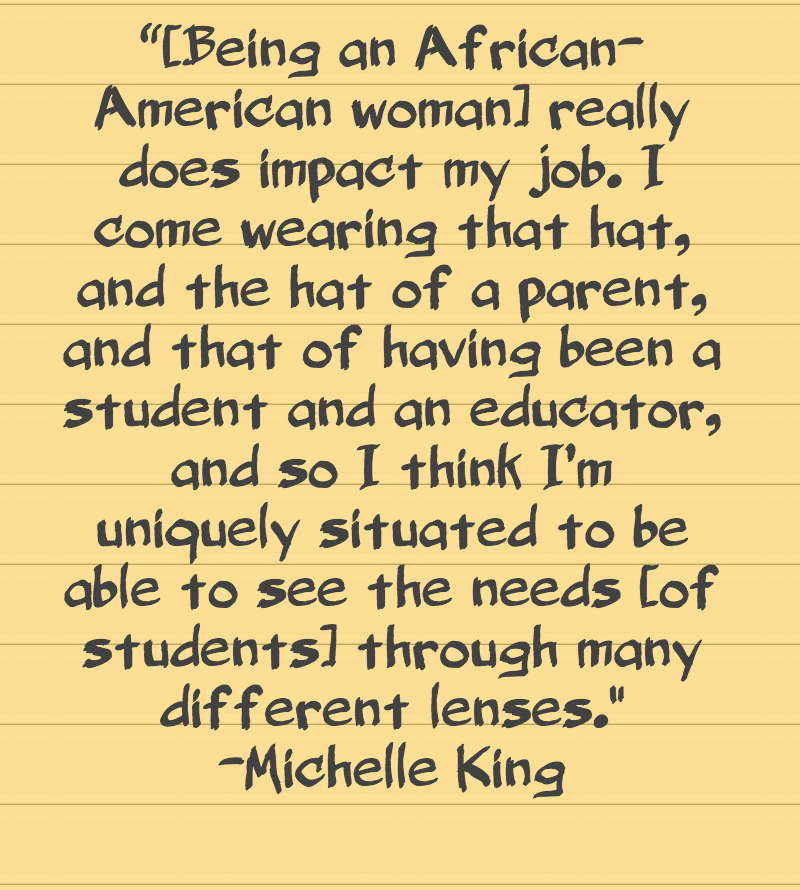 King has noticed the sometimes discouraging role that gender can play in the career aspirations of girls, and hopes that her new promotion will inspire others.
King has noticed the sometimes discouraging role that gender can play in the career aspirations of girls, and hopes that her new promotion will inspire others.
“Women in general — and particularly women of color — it’s not always something they think is a place for them,” she said. “So I hope to be that role model for young girls to show that if there’s something you want, whether it be the superintendency or the presidency of the United States, you can have that, it’s possible.”
She also commented on the role her race plays in her position.
“I think, also, I’m able to understand the struggle of people of color, with what they have to go through, and the barriers they’re confronted with. Having that understanding and that cultural sensitivity and competence also provides the opportunity for us to do things to ensure that more kids of color are able to have access to more. And then I’m a strong proponent of social justice and work on that, so I also bring that as well,” she said. “So it’s an exciting time, and I hope what it says to students is that just because it’s never existed doesn’t mean it can’t exist. I hope that’s what I represent.”
Hopes and dreams for LA’s youth
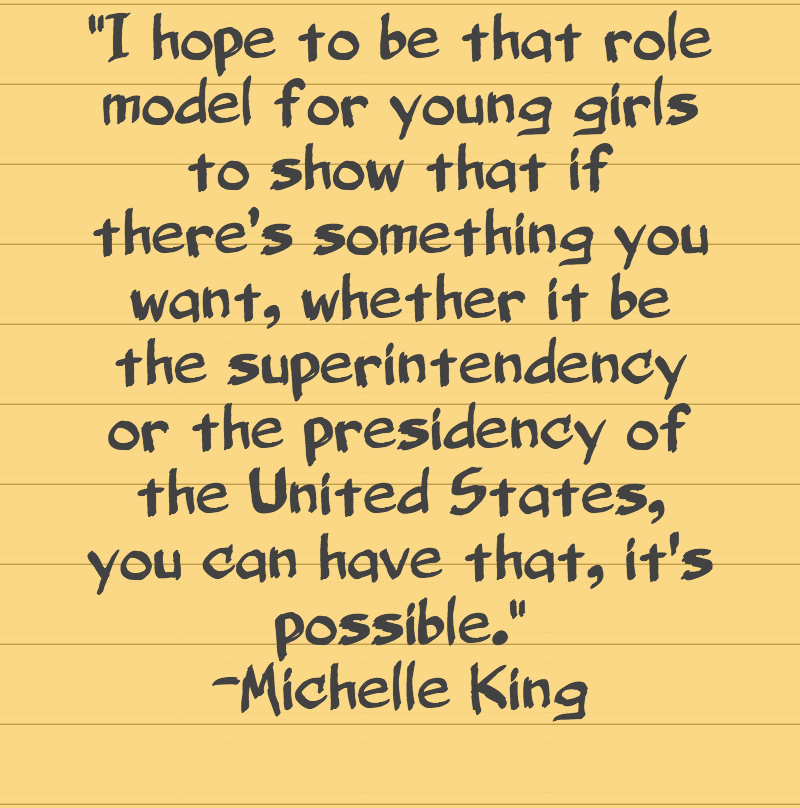 What exactly are King’s goals for the large and complex group of students she’s overseeing? Greater Science, Technology, Engineering and Math (STEM) involvement, a single-sex option, bilingual education and “21st century preparedness” are a few goals she cited.
What exactly are King’s goals for the large and complex group of students she’s overseeing? Greater Science, Technology, Engineering and Math (STEM) involvement, a single-sex option, bilingual education and “21st century preparedness” are a few goals she cited.
“We’ve talked about STEM,” King said. “I’m also interested in really promoting computer science… and having more courses across our schools and even reaching down into the middle years to have computer science courses. Not just keyboarding and learning a computer — I mean real computer science courses — programming and all of that,” she said.
In addition, King mentioned her interest in promoting both the arts and bilingualism.
“The arts are huge for me,” she said. “All genres of art are important, and so I want to be sure that we are able to have those opportunities in arts and music across the district.
“I’m also a big cheerleader for dual language, so looking at bilingualism and also biliteracy is important. I’m looking to have more of those opportunities so kids can leave our system being bilingual. I think that only positions them to be able to compete in this new global society that we live in.”
King’s plan for a public all-girls school opening this fall — a plan partly inspired by her daughter’s time at Archer — has sparked some controversy, notably inspiring Juliet Williams’ LA Times op-ed, “What’s wrong with single-sex schools? A lot.” King, however, is undeterred.
“It wasn’t easy – it wasn’t an easy road, as you might suspect,” she said. “The different laws, like Title IX, say that what you do for one gender, you have to do for the other. We had a lot of different hurdles to surpass, but fortunately, we were able to get it past the board, and we went to the state, and we got approval to go ahead and open it.”
According to King, STEM is one of the school’s biggest focuses.
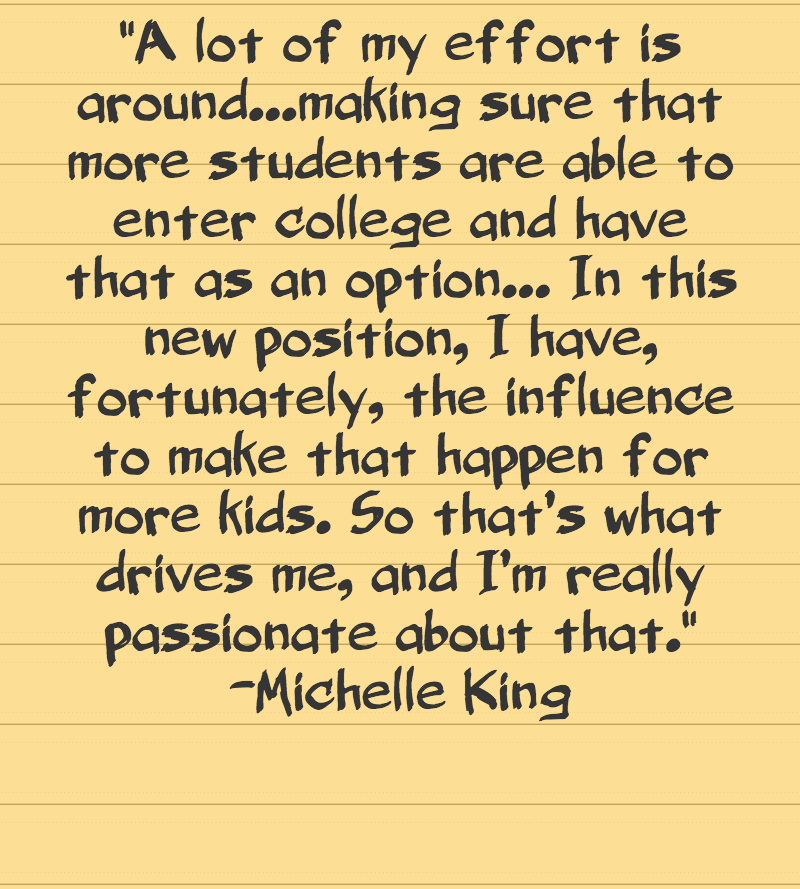 “Ours is a 6-12 school, it will be a STEM school because part of our mission is to increase the number of girls who are engaged in STEM, and so that’s the focus of the school. [My colleague] has been able to partner with a number of all-girls schools across the country, and we’re really working with companies in alignment with the STEM movement and with engineering and robotics to really infuse that.
“Ours is a 6-12 school, it will be a STEM school because part of our mission is to increase the number of girls who are engaged in STEM, and so that’s the focus of the school. [My colleague] has been able to partner with a number of all-girls schools across the country, and we’re really working with companies in alignment with the STEM movement and with engineering and robotics to really infuse that.
According to King, the school will first enroll girls in grades six and nine and then build from there. It will be housed on the campus of Los Angeles High School, but will operate independently.
“You should know that we’re also looking to open an all-boys school, a brother school. That will go to the board this year,” King said.
The all-boys school is targeted to open sometime during 2017-2018.
Finally, King discussed her passion for higher education and career preparedness.
“I’m also a really big proponent of college and career readiness and getting more kids eligible to be able to go to college, but also to sustain in college and not drop out of college and to be able to graduate and get a degree,” she said.
King stressed the importance of allowing a wider array of students these educational opportunities.
“A lot of my effort is around that, and making sure that more students are able to enter college and have that as an option. You know, Britney, my daughter who went to Archer, and her two sisters, they’re all graduates of college. So it’s a big piece for me, to push that. In this new position, I have, fortunately, the influence to make that happen for more kids. So that’s what drives me, and I’m really passionate about that.”
King’s message to burgeoning educators: “I can’t think of any more important profession than being a teacher”
King, reflecting on the lessons she’s learned over the course of her career, claimed that the number-one equalizer she saw amongst all citizens of Los Angeles was their desire for a high-quality educational system and a means of opportunity for their children.
“I’ve met and engaged with so many folks, so it’s really helped me to have a greater understanding about what the lives of people are and what their needs are. But it’s also helped me to know that, even given all of those different, diverse pieces, everyone, in the end, kind of wants the same thing for their kids,” she said. “I’ve really come to embrace and understand that at a greater level than I had. Parents want the best for their kids. And students, I believe, want to be the best that they can be also.”
After spending upwards of 30 years in the field of education, King was eager to offer advice and encouragement to young women hoping to follow in her footsteps.
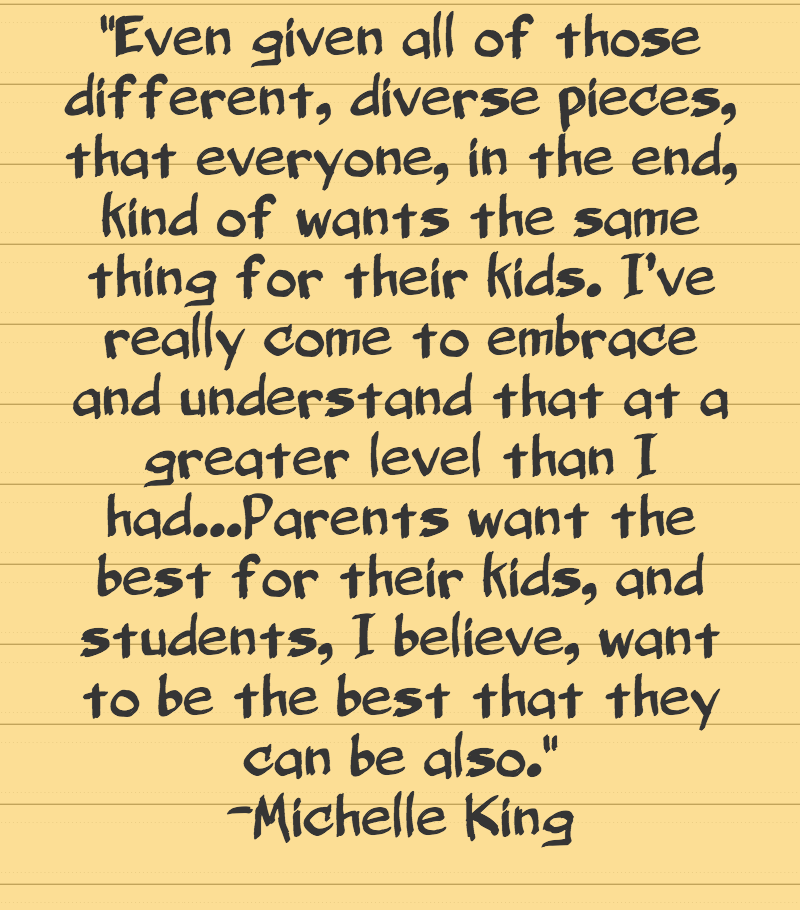 “First, I’d say I’d encourage women to enter the field of education because it is such a rewarding profession to be able to give back to an institution that has done so much for each of us. It’s about paying it forward, and I think that’s a significant piece,” she said.
“First, I’d say I’d encourage women to enter the field of education because it is such a rewarding profession to be able to give back to an institution that has done so much for each of us. It’s about paying it forward, and I think that’s a significant piece,” she said.
“Women are uniquely able to be that person who can deliver but nurture at the same time…that’s the whole social and emotional part of learning that I think is also critical. So I encourage young women to consider being a teacher, being a principal and being engaged in education because there’s no more important profession that being able to shape the lives of the future,” she said.
What do LAUSD students think?
Click below to listen to LAUSD high school students discuss their feelings about the new superintendent. Featured speakers include: Alexis C. (Eagle Rock High School), Carlos C. (Ramon C. Cortines School of Visual and Performing Arts), Alyssa F. (Ramon C. Cortines School of Visual and Performing Arts), Density W.Y. (Hollywood High School) and Lily L. (Los Angeles Country High School for the Arts — while this is not an official LAUSD school, many students there have attended LAUSD schools in the past).
How do you feel about LAUSD’s new superintendent? Did you know a lot about it?
What does it mean to you to have a woman of color leading the school district?
How do you feel about the superintendent’s goals?
Any final thoughts?
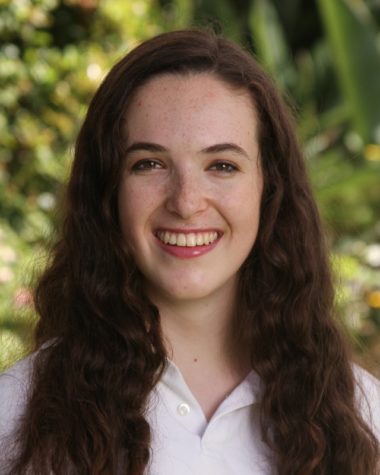
Eloise Rollins-Fife joined the Oracle staff in 2015 and was promoted to co-Voices editor in 2016. She became the Managing/News & Features Editor for...



